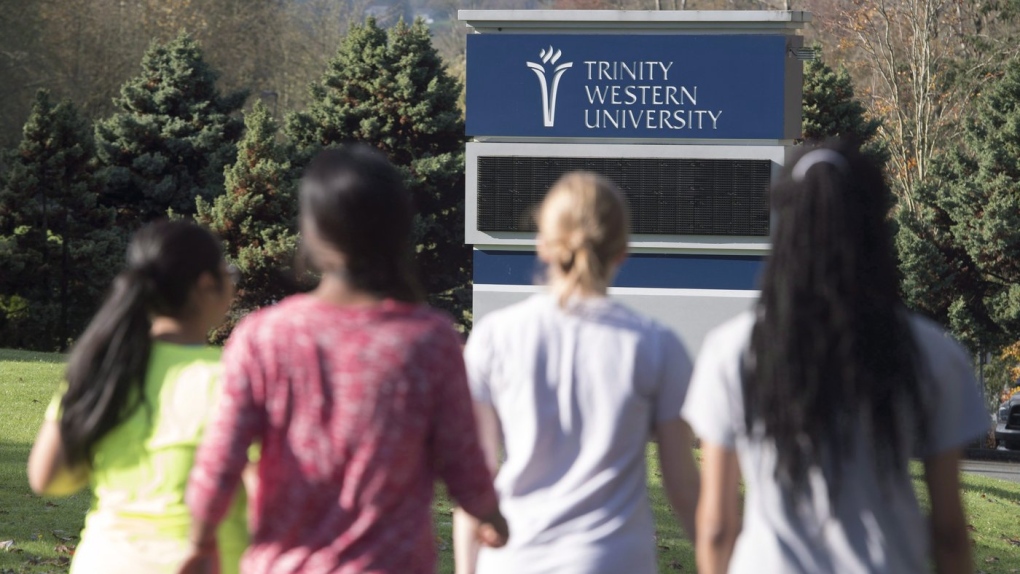
VANCOUVER – When Vancouver-based Justin Wong was studying online for his master of arts at Trinity Western University during the pandemic, he had to get up at 4 a.m. to collaborate with classmates.
That’s because they were in China.
“Many of my classmates were from China and felt they could save tons of money by not living in Canada,” Wong, who graduated last year, said in an interview in Mandarin.
Immigration data suggest tens of thousands of Chinese students in Canada may have returned to China during the pandemic.
But now Canadian universities and officials say they are getting ready to welcome some back, after the Chinese government ordered students taking online classes with foreign universities to return overseas.
The Chinese Ministry of Education said in a directive dated Jan. 28 that students studying online in China would have to return to foreign campuses this spring semester, or their qualifications would not be recognized in the Chinese job market.
The Chinese Service Centre for Scholarly Exchange, which endorses foreign qualifications, “will no longer provide degree credential services” for students using foreign remote learning, the statement said.
The ruling was effective immediately for the term that started early January. The centre later issued an exemption for students who could not secure flights or visas in time for their classes.
The number of Chinese students in Canada with study permits fell by more than 30,000, or 19 per cent, during the pandemic, from 173,365 in 2019 to 141,085 in 2021, according to Immigration Refugees and Citizenship Canada. The number in B.C. fell 22 per cent to 33,355.
While Canadian universities and government officials could not provide the number of online students affected by the new Chinese policy, one education consultant says it is in the thousands.
Max Meng, CEO of Guangson Education, a B.C.-based education and immigration company, said 2020 was a peak for overseas online learning among Chinese students.
“Under the recent (online learning) policy, combined with the opening up vibe in the post-pandemic era, Metro Vancouver is expected to see another influx of thousands of people from China to come here,” said Meng.
He said his firm has received an increase of 30 per cent in consultancy inquiries from China compared to this time last year.
Kwantlen Polytechnic University spokesman David Connop Price said that 45 per cent of the “seats” or courses in which Chinese students are registered are fully online at the B.C. university.
But this number did not represent the proportion of students, since an individual could be registered to multiple courses, and it was not known whether an online student was in China, Canada or elsewhere.
Carole St. Laurent, Kwantlen’s international associate vice-president, said that before the pandemic, 15 to 20 per cent of KPU students were from China, but the number dipped to about ten per cent amid the pandemic. The university says almost 20,000 students attend courses each year.
St. Laurent said 531 students from China had been enrolled in their fall program.
“With this new policy announcement (from China) we’re going to see those numbers climb again,” said St. Laurent.
She said the school began offering online classes during the pandemic, but students studying remotely in a foreign country might miss out on some opportunities.
“Although a lot of students think it might be a bit of cost savings when they are studying at home, they are really missing out on meeting their peers here, missing out on experiencing the Canadian culture when they study at home.”
Cyndi McLeod, CEO of Global University Systems Canada, the B.C.-based University Canada West’s parent company, said she recognized the challenges some Chinese students face, especially those enrolled in an overseas program but lacking the financial ability to come here.
“Maybe if there was a grace period that could be put in place for those students. Hopefully, a university in China will be able to give them transfer credit back, so that they aren’t losing their entire degree,” McLeod said of students unable to return.
B.C.’s Ministry of Post-Secondary Education and Future Skills said of the Chinese directive that it will “work closely with institutions to understand how they can best support international students from China during this time.”
The ministry said it doesn’t have any data about Chinese students studying remotely.
“As one of the top destinations for international students in Canada, we welcome students from around China and across the world to start or continue their studies in B.C.,” it added.
Mark Tanner, managing director of Shanghai-based marketing firm China Skinny, which gauges Chinese consumer sentiment for clients, said the government’s directive was “a symbolic gesture” to show China is “genuinely open again.”
It sent a positive signal to countries with high numbers of Chinese students such as Canada, he said.
“In addition to the direct benefits for education providers, tourism operators often reap benefits from visiting friends and relatives of students. With students and their families building affinities to Canada, foreign investment also often follows, if policies support this,” said Tanner.
McLeod of Global University Systems Canada called the Chinese policy a “positive sign” for Canadian educational institutions.
She said they have about 130 on-campus Chinese students and hope to grow that number, with China their priority market in 2023.
